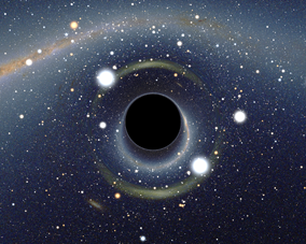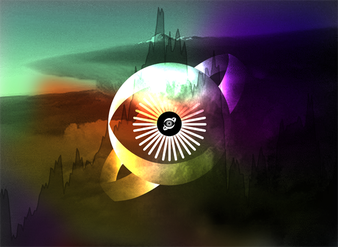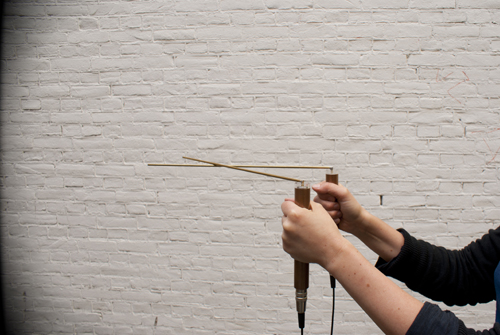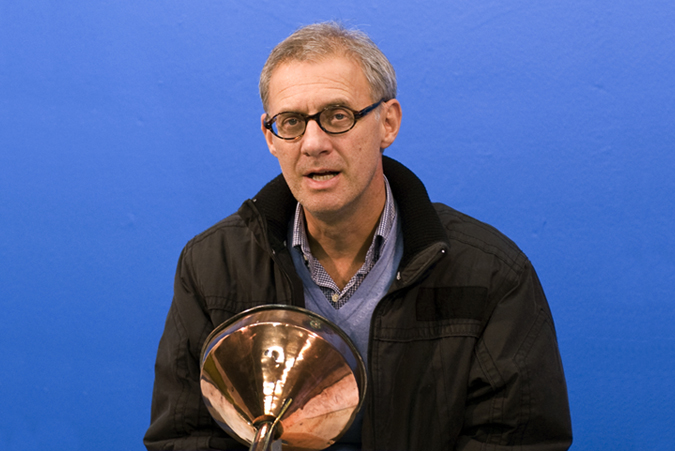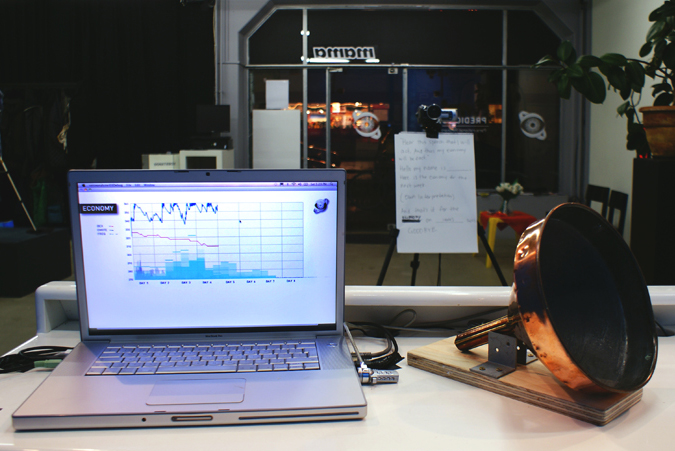PARA-RATIONAL RESEARCH STATION
Para-rationalism
Para-rationalism, described by Edward A. Shanken (Shanken, 2010), is an approach which transcends binary oppositions by traversing and including complementary modes of inquiry – of both the rational and the irrational in forming a cohesive application to alternative ways of knowing, one that doesn't only subscribe to the hegemonic scientific rational discourse. Para-rationalism in this sense is used to problematise and straddle this rational/irrational dichotomy.
Divination is one of the earliest guiding and coping mechanisms that actively and equally involves both reason and intuition to deal with uncertainty and unforeseen future events, exploring the uncharted in order to seek answers to questions beyond the range of ordinary human understanding. One can say it is para-rationalist by nature. These practices have been employed throughout human history as a means of spiritual and temporal guidance and knowledge making. From these beliefs the universe was codified with meaning and knowledge that informed subjectivity and objectivity. In modern secular society, the legacy of divination can be traced in the contemporary use of weather forecasts issued by governmental meteorologists and predictive algorithms for economic forecasting in the name of progress. This reflects how the tradition has not so much as survived, a term that suggests persistence of old forms, but rather continued, a term which suggests new meanings and boundaries (Perkins, 1996). As a continuation of older forms, these techno-scientific predictive practices have abandoned intuitive forms of inquiry, at least nominally, to superstition and history, relying only on the systematic deployment of rational and quantifiable methods. In light of the current global and particularly European economic conundrum, predictions are calculated and risk management is so embedded that it has becomes an integral part of the chain of collapsing events.
The weather, at foremost, is a primordial force that underpins the struggle to come to terms with the chaos of world manifested originally in its natural phenomena. In an attempt to understand the underlying order of the weather in the early 1960s, the meteorologist Edward Lorenz came to identify chaotic events in the atmosphere arising as a consequence of attempting to model systems mathematically. Chaos theory, as it was to be called, focused on chaos concepts to refine matters of structure, prediction and control, and has been further theorised in fields such as, sociology, economics and philosophy. Some examples of chaotic dynamic systems are the weather, the stock market, economies and human behaviour, all of which have deterministic qualities that are nevertheless vastly unpredictable due to the extremely sensitive initial conditions that give rise to unexpected large results. It is for this reason that Prediction TV attempts predict the unpredictable economical system and the weather alike through para-rational methods.
Divination is one of the earliest guiding and coping mechanisms that actively and equally involves both reason and intuition to deal with uncertainty and unforeseen future events, exploring the uncharted in order to seek answers to questions beyond the range of ordinary human understanding. One can say it is para-rationalist by nature. These practices have been employed throughout human history as a means of spiritual and temporal guidance and knowledge making. From these beliefs the universe was codified with meaning and knowledge that informed subjectivity and objectivity. In modern secular society, the legacy of divination can be traced in the contemporary use of weather forecasts issued by governmental meteorologists and predictive algorithms for economic forecasting in the name of progress. This reflects how the tradition has not so much as survived, a term that suggests persistence of old forms, but rather continued, a term which suggests new meanings and boundaries (Perkins, 1996). As a continuation of older forms, these techno-scientific predictive practices have abandoned intuitive forms of inquiry, at least nominally, to superstition and history, relying only on the systematic deployment of rational and quantifiable methods. In light of the current global and particularly European economic conundrum, predictions are calculated and risk management is so embedded that it has becomes an integral part of the chain of collapsing events.
The weather, at foremost, is a primordial force that underpins the struggle to come to terms with the chaos of world manifested originally in its natural phenomena. In an attempt to understand the underlying order of the weather in the early 1960s, the meteorologist Edward Lorenz came to identify chaotic events in the atmosphere arising as a consequence of attempting to model systems mathematically. Chaos theory, as it was to be called, focused on chaos concepts to refine matters of structure, prediction and control, and has been further theorised in fields such as, sociology, economics and philosophy. Some examples of chaotic dynamic systems are the weather, the stock market, economies and human behaviour, all of which have deterministic qualities that are nevertheless vastly unpredictable due to the extremely sensitive initial conditions that give rise to unexpected large results. It is for this reason that Prediction TV attempts predict the unpredictable economical system and the weather alike through para-rational methods.
Para-rational Technologies
DOWSING RODS (DIVINING RODS)
"Dowsing is a type of divination employed in attempts to locate ground water, buried metals, ores, gemstones, oil, gravesides, and many other objects and materials, as well as so-called currents of earth radiation (Ley lines), without the use of scientific apparatus." - Wikipedia
This technique of looking for invisible forces has been practiced for over 600 years and its dubious history has been associated with superstition and occultism. Not following Christian principles, divination was deemed ungodly and heathenish. Today, such practices are labelled irrational and unreliable due to its lack of scientific rationale. This is precisely the reason why we think this device is interesting to use.
Using old and modern techniques, our brand of rods especially designed for Prediction TV are hand made with the utmost craftsmanship. They consist of metals such as brass and copper making them a great natural conductor of energy and water. Fitted with electronic sensors, these rods can also detect the body's unconscious movements and bio-electricity. Through data collection and computer analysis, our dowsing rods have the ability to assess the weather by measuring emotional fluxes.
This technique of looking for invisible forces has been practiced for over 600 years and its dubious history has been associated with superstition and occultism. Not following Christian principles, divination was deemed ungodly and heathenish. Today, such practices are labelled irrational and unreliable due to its lack of scientific rationale. This is precisely the reason why we think this device is interesting to use.
Using old and modern techniques, our brand of rods especially designed for Prediction TV are hand made with the utmost craftsmanship. They consist of metals such as brass and copper making them a great natural conductor of energy and water. Fitted with electronic sensors, these rods can also detect the body's unconscious movements and bio-electricity. Through data collection and computer analysis, our dowsing rods have the ability to assess the weather by measuring emotional fluxes.
ECONOMIC DEPRESSION DETECTION
Speech emotion analysis refers to various scientific methods to analyse vocal behaviour as a indicator of affects, such as emotions, moods and stress levels. The basic assumption is that there is a set of objectively measurable voice parameters that reflect the affective state a person is currently experiencing (or expressing for strategic purposes in social interaction).
Based on the Misery Index, Prediction TV has developed a formula called the Depression Index. It is an economic indicator based on our assumption that depression causes economic crises. As a result para-rational expert, Danny van der Kleij, has built a sophisticated device with dedicated software to predict future economic situations by way of analyzing levels of depression through speech signals.
Based on the Misery Index, Prediction TV has developed a formula called the Depression Index. It is an economic indicator based on our assumption that depression causes economic crises. As a result para-rational expert, Danny van der Kleij, has built a sophisticated device with dedicated software to predict future economic situations by way of analyzing levels of depression through speech signals.

